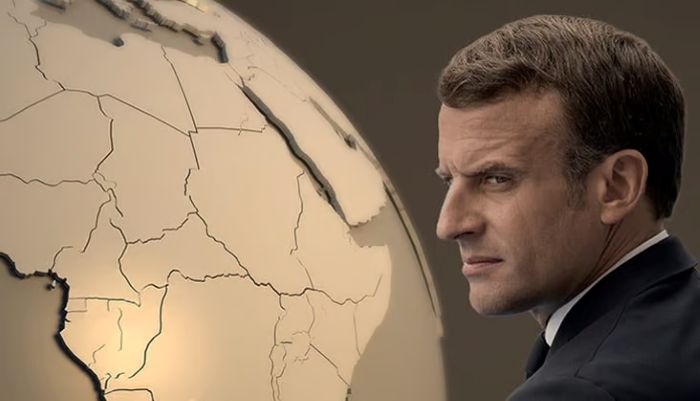(4 Minutes Read)
West African countries grew disillusioned with French domination, feeling vulnerable due to excessive reliance on trade, investment, and aid. The imposition of the French language also eroded their national identity and local traditions.
For decades, West Africa has been carrying the albatross of its colonial past. The continued use of the French language, membership in the CFA franc currency union, and the presence of French military bases are only a few illustrations of “Françafrique,” which symbolised the French influence in the region.
Over time, West African countries became disillusioned with French political and economic domination. The excessive reliance on trade, investment, and Aid left them vulnerable, while the imposition of the French language purged the region of its national identity and local traditions.
The cornerstone of French control in West Africa was its military presence. French military bases across Africa- Côte d’Ivoire, Gabon, Chad, Senegal, and Djibouti – provided the country a strong geopolitical foothold. These were used for military operations against Islamist insurgents in the Sahel region, such as Al-Qaida and Islamic State groups. Since 2013, France has managed a decade-long military operation in Mali to fight militants. Later it was expanded to Niger, Burkina Faso and Chad.
However, France’s Military Interventions not only failed to prevent terrorist attacks but rather perpetuated a cycle of dependency on foreign forces. They prioritized French geopolitical and economic interests, compromising the sovereignty of dependent nations.
Francophone countries’ historical resentment, economic discontent, and quest for sovereignty peaked in the last few years. Six African countries -Niger, Chad, Gabon, Mali, Senegal, and Burkina Faso terminated their defence cooperation with France. The junta-led breakaway countries formed a new Alliance- the Alliance of Sahel States (AES) that also withdrew from the West African regional bloc, ECOWAS. Going further, the new Alliance announced its decision to withdraw from the Francophone union, the Organisation Internationale de la Francophonie (OIF), on March 18, 2025.
The failure of the French forces to curb the region’s security challenge effectively was the prime cause for the anti-French wave. There are economic, political and social grievances too. The former West African colonies allege that the overdependence on France by way of the CFA franc currency system undermined their financial sovereignty. The French companies were accused of draining their natural resources without sufficient contribution for the development of the region.
France’s exit from West Africa signals a broader shift in global power dynamics. It offers both opportunities and challenges.
Firstly, it has created a security vacuum in the region. The inability of the junta leaders to control the spiralling insecurity has emboldened extremist groups, as evident in the case of Burkina Faso.
At the same time, this is an opportunity for the region to scout for new business partners on better terms. Russia, in particular, is trying to step in as a new alternative, offering military support and economic ties. Russia has stepped up its engagement, particularly in Sahel countries like Mali and Burkina Faso, through the deployment of the Wagner Group (now Africa Corps).
China has also significantly enhanced its African presence through substantial investments in infrastructure development, particularly under the Belt and Road Initiative (BRI). Turkey is another emerging player in the region.
While seeking new alliances, the primary focus of these countries is equitable partnership and sovereignty. The former colonial powers, including France, were criticized for a one-sided deal that prioritised benefits for them, ignoring the social, economic, political, and developmental needs of the region. Partnerships with countries like Russia and China also may not necessarily guarantee these benefits.
The economic hardship of the region is expected to escalate in the face of the scaling down of the USAID and Western Aid. Europe, particularly France, is also experiencing significant political, economic, and security challenges. The U.S. decision to phase down security guarantees for Europe has pushed Europe to focus on its military spending rather than as a security provider for other regions.
Both Russia and China are also battling their own economic and political challenges, including the ongoing trade war with the US, economic sanctions, and shrinking economic growth. It’s doubtful if they will spare resources to offer large-scale financial support to these countries.
Political experts hail the decision of these African nations to distance themselves from France as timely, given the shifting global dynamics under the Trump 2 era. The future of Francophone Africa will hinge on its ability to navigate challenges and forge new partnerships that enhance political and economic security. Rather than prioritizing resource extraction or military alliances, these nations must focus on rebuilding their economies through infrastructure development, job creation, and sustainable growth.
Ultimately, the challenge before the West African region is not only choosing the right alliances but also reclaiming its sovereignty and position on the global stage. However, long-term international partnerships need a favourable business environment. Without focussing on structural reforms, building strong political and economic institutions, and better governance, it may remain a pipe dream.





